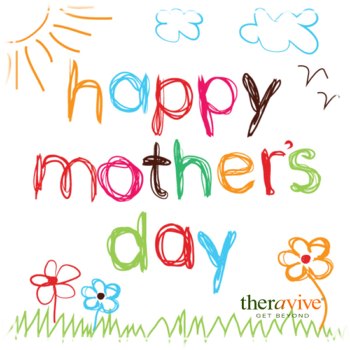
History
of Mother’s Day
The city of Philadelphia. Philadelphia is the largest
city in Pennsylvania. A person may ask the question, “What’s so special about
Philadelphia?” Movie buffs may quickly hum or sing a particular movie’s theme
song or recite a slogan, “Yo Adrian,” or described the famous running scene
from the movie Rocky. Hip Hop enthusiast know it’s the home of the first hip
hop group to win a Grammy, which is DJ Jazzy Jeff & The Fresh Prince. Patriotism know it’s the home of the Liberty Bell along with the Independence Hall where
The Declaration of Independence and the Constitution of the United States were
signed. However, many may not know, except Historians, it’s the home of Anna
Jarvis the woman who began a tradition which has come to be known as Mother’s Day.
May 12, 1907 (Encyclopedia Britannica, 2014) is the
origin date given where Anna Jarvis held a memorial services for her late
mother. In 1914 it became a national holiday by President Woodrow Wilson.
Traditionally, a white carnation was attribute to one’s mother. Over the years
a red or pink carnation is used to represent a living mother, while a white carnation
identifies a mother that is deceased. In addition, over the years, Mother’s day
included paying tribute to aunts and grandmothers or any maternal figure.
In the year 2016, Mother’s Day falls on Sunday, May 8.
Mother’s Day is a day that is observed in the United States and other
countries. It is a day that is special for the work and contribution that
mothers do. The majority is unaware of what a mother has to sacrifice or go
through for the sake of their child. Which brings up the argument of birth
mothers and adopted mothers. Do birth mothers, who gave their child up for
adopted, worthy of recognition of Mother’s Day? Do adopted mothers, who took in
a child that is not biologically theirs, worthy of recognition of Mother’s Day?
Birth mothers who gave up their child and adopted mothers both may experience core
issues related to adoption (Timm, Mooradian, & Hock, 2011) such as loss & grief, entitlement,
claiming, family integration, bonding and attachment, identity, and mastery and
control.
Loss
& Grief
A loss is the process of losing something and grief is
a deep sorrow. A birth mother may experience tremendous loss and grief of
giving away something that grew inside of her. It is loss that the birth mother
will not raise the child in their own home or provide for them. Adopted mothers
may experience loss and grief that they are unable to have their own biological
child and experience natural motherhood.
Entitlement
Entitlement, is related to having the “right” to certain
things. A birth mother no longer have the legal rights to her child because she
legally gave those rights them up. However, she still remains the biological
mother, which is a right in its own. Adopted mothers at times may struggle with
do they have the right to discipline or put the child in certain activities or
care for the child in a particular manner since the child is not biologically
theirs.
Claiming/Un-claiming
Claiming, (Timm et al, 2011, p 274) “is the process by
which adopted parents accepted the adopted child (ren) as their own, consider
them to be full-fledge members of the family, and begin to identify
similarities between the child (ren) and themselves, or other family members.” Un-claiming
is process by which the birth mother has to consider their child not be full fledged members of another family and for that child to identify themselves with
that family.
Family
Integration/Separation
Integrating a child into a new family has its struggles.
A single adopted mother now has to integration of child into her single life
and the arrangement that needs to be made. An establish family, the mother has
to integrate a “new child” into the everyday functions of the family. The birth
mother goes through separation of what life with the child could have been and
how her life would have different.
Bonding
& Attachment
Adopted mothers may experience challenges with bonding
and attachment of the new child that is not biologically theirs. A child is displaying
behavior or likes that are not that them or their significant others. Birth
mothers may experience an empty bond. Intellectually know they have a child,
however no emotional bond with that child.
Identity
Adopted mothers may struggle with the identity of
being a “real” mother because the child is not biologically theirs. Social
stigma may play a role in the adopted mothers struggle. Also for the birth mother
may struggle with identity of not being a mother because of the fact she gave
her child up. Social stigma as well may play a part in what her identify should
or should not be.
Mastery
& Control
Adopted mother and birth mothers may experience a lack
of master and control over the thoughts or emotions that comes from the whole
process of giving their child up for adoption or accepting a child from
adoption. Many thoughts and emotions may come a one time or little by little,
nevertheless, managing one’s self is challenge in its own right.
Summary
Are birth mothers, who gave their child up for adoption,
worthy of recognition of Mother’s Day? Are adopted mothers, who took in a child
that is not biologically theirs, worthy of recognition of Mother’s Day? The
answer is yes. A birth mother who gave her child up for adoption, definitely
gets recognition for her role having given birth to a child, unselfishly given
up the child, and her own personal experience with core issues of adoption. An
adoption mother who decided to take on a mother’s role with a child who biologically is not theirs, a stranger, with outcomes based on genes unknown, along with her own
personal core issues challenges, is very worthy of recognition on mothers’ day
as well.
References:
Mother’s Day. (2014). Encyclopedia Britannica.
Timm, T.M., Mooradian, J.K., & Hock, R.M. (2011). Exploring core issues in
adoption: Individual and martial experiences of adopted mothers.
About the Author

Henry M. Pittman
, MAHenry M. Pittman came into the field of counseling through substance use disorders in the fall of 1997. He was a substance abuse tech at a hospital in Houston, TX and what he saw motivated him to take all the counseling hours needed to become a substance abuse counselor in 1998. Since then he has pursed the required education and knowledge to become a master level counselor and therapist.
Office Location:
7807 Long Point Dr, Ste 215
Houston, Texas
77055
United States
Phone: 800-419-2568
Contact Henry M. Pittman
Professional Website:
www.therapeuticallc.com